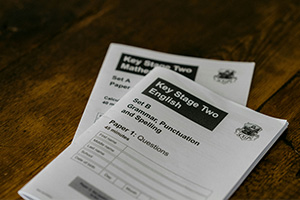What to Put for Desired Salary on a Job Application | A Complete Guide
The desired salary refers to the expected amount that you want to get paid if you get hired. It is the amount of money that you are hopeful to get paid while doing the job or performing the particular assigned task. One of the trickiest interview questions is "What is your desired salary?" Answer strategically to get good compensation without risking your chances of getting hired.
Learn How to Negotiate Severance Package
Through this article, learn what to put for the desired salary on a job application, and get tips on how to handle this sensitive aspect of your job search.
Options for Answering the Desired Salary Question
While facing the desired salary query (what should I put for desired salary on job application?), there are several options to respond. Each with its pros and cons depending on your situation.
Provide a Salary Range
One of the safest ways to answer is by providing a salary range, not the exact number. This gives you room for flexibility and proves that you are open to negotiation. Make sure to research the industry standard for your role in your location before giving out a range.
Example
"$10,000 - $15,000"
Pros
- Allows room to negotiate
- It proves that you have done your homework
- Keeps you in the running if the employer's budget falls within your range
Cons
- If your range is too broad, it may appear non-committal
- If It's too narrow, it could limit your negotiation power
Write "Negotiable"
If you do not have any idea or would not like to limit yourself, then you can simply write, "Negotiable." That means you are open for negotiation depending on the whole job offer, including the benefits and responsibilities involved in the job.
Example
"Negotiable"
Pros
- Keeps the door open for negotiation
- Avoid pricing yourself too high or too low
Cons
- This may be seen as vague by some employers
- Does not provide enough information to the employer about their fit
Research and State a Number
Do your research, know your value, and then make a specific number based on a competitive salary for that position. Use resources such as Glassdoor or PayScale, or even industry reports that talk about market salary ranges.
Example
"$25,000"
Pros
- Demonstrates confidence and clarity about your value
- This might expedite the salary discussion
Cons
- Reduces your leeway in negotiation
- Runs the risk of being either too high or too low to fall within the employer's budget
Leave It Blank or Use a Placeholder
If possible, especially for online applications, you can often avoid the question regarding “what to put for desired salary on application”. You can also enter a placeholder such as "0" or "N/A". That at least delays the conversation until later in the process, giving you more time to focus on writing an effective CV that highlights your qualifications and value to the employer.
Example
"0" or "N/A"
Pros
- Defers remuneration discussion to a later stage
- Allows you to have more information about the role in advance of discussing salary
Cons
- This may be seen as evading the question
- Some online forms may not accept this answer
Tips for Handling the Desired Salary Question
No matter which option you take, follow the following tips prepared by the experts at Resume Thrive to ensure you can confidently navigate the question of your desired salary;
Do Your Research
Do your research on what the average salary is for the position you are applying for within your industry and location. This gives you an even more realistic expectation of what should i put for desired salary and helps in setting a reasonable range or number.
Tools for Research
- Glassdoor: Provides salary data by job title, location, and business.
- Payscale: Offers customized salary reports based on experience and industry.
- LinkedIn Salary: Gffers insight into salary distribution for a wide range of roles.
Consider the Entire Compensation Package
Salary is only just one part of the compensation. Think about health insurance, retirement plans, bonuses, stock options, and work-life balance, too, when you're deciding just how much salary you'll need.
Example
- Health insurance and retirement contributions
- Performance bonuses or stock options
- Time off with pay, flexibility in work
Be Honest, But Strategic
Be honest, yet strategic with your salary expectations. Avoid asking for too little because you're worried about not getting the job, but also don't aim for an amount that's way too high.
Be Prepared for Follow-Up Questions
Be prepared to defend your range or specific number, if you provide one. You may well be asked why you used that figure; be prepared with your research and reasoning behind the figure.
Example
"I chose this range based on my experience, the industry standard for this position, and the cost of living in this area."
What to Do If the Topic Comes Up in an Interview
If you didn't provide a desired salary on your application and it comes up in the interview, the same principles hold. Here's how you can handle this situation;
- Defer if Possible: You could say, "I would appreciate being able to understand more about the position and the responsibilities, if at all possible, before we discuss salary."
- Offer a Range: Provide a researched range within your market.
- High-income Skills: Highlight your high-income skills that justify your salary expectations.
- Ask for the Employer’s Range: Sometimes it pays to turn the tables and ask "What is the salary range for this position?
How to Follow Up After Submitting Your Application
That's fine if you've already sent in your application without one or, having learned more about the position, would like to clarify your expectations. You can follow up if you wish, but make sure to send a polite email to the hiring manager just to make sure you are on the same page.
Example
"Dear [Hiring Manager's Name],
Thank you for considering my application to the post of [Job Title]. I wanted to drop you a line regarding salary expectations. Since I understood the role in greater detail, according to the responsibilities and my experience, I believe a salary in the range of $[X] to $[Y] would be suitable. I am willing to discuss further during the course of the interview process.”
Conclusion
It could be tricky when you are asked in your application letter to state the expected salary. Many people get confused about what should i put for my desired salary? You must say an amount that you know will not make you underpaid, yet you have to take into consideration what the company can afford. Doing some research and knowing one's value in the current job market is quite necessary for anyone who wants to give their best answer to such a question. This will set them up for success in a salary discussion later on.










